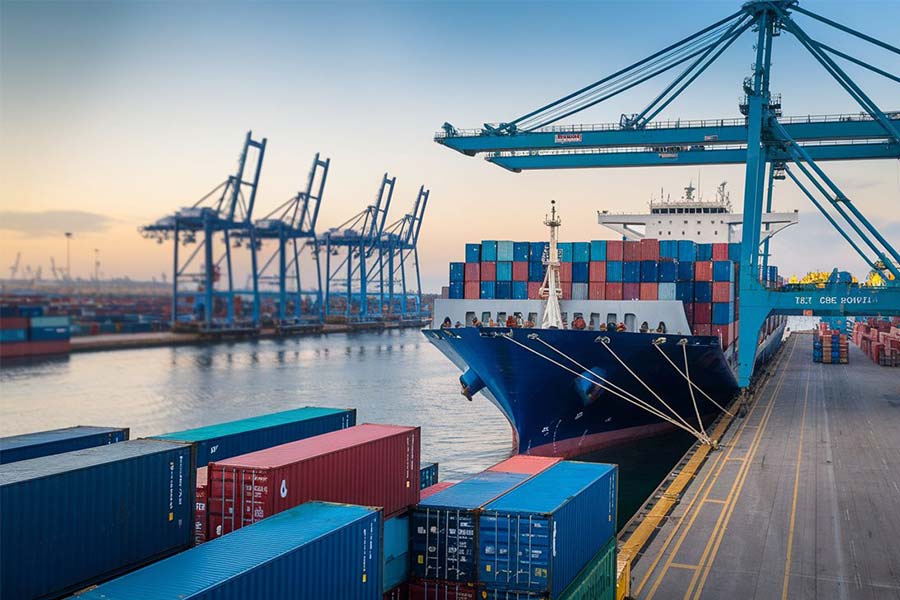- Shanghai Zhongshen International Trade Co., Ltd. - Two decades of trade agency expertise.
- Service Hotline: 139 1787 2118

Introduction
Amid the wave of globalized trade, importing household toolkits from Japan has become one of the choices for many businesses to expand their operations. However, the import process involves numerous complex steps, ranging from document processing to logistics arrangements, and from trade regulation compliance to...FX Settlement AgencyProcess: Every step requires careful handling. This article will provide a comprehensive analysis of matters related to importing household toolkits from Japan.
Professional document processing and logistics arrangement
Document processing plays a crucial role in import operations. When importing household toolkits from Japan, the first step is to prepare a Commercial Invoice, which provides detailed information such as the description, quantity, and value of the goods, serving as a key basis for customs declaration and taxation. The Packing List specifies the contents of each package, facilitating customs inspection and logistics verification. The Bill of Lading, as the title document for the goods, isMaritime TransportationAn indispensable document in the process.
Our company has extensive experience in document processing, ensuring that all types of documents are submitted accurately, completely, and on time. For logistics arrangements, we select the most suitable transportation method based on the volume, weight, and delivery time requirements of the goods. For items such as household toolkits, if the quantity is large and the time requirement is not particularly urgent, ocean freight is a more economical choice. If the goods are urgently needed in the market,Air Transportation(Air Freight) can significantly reduce transportation time. At the same time, we maintain good cooperative relationships with major shipping companies and airlines to ensure the stability and efficiency of cargo transportation.
Challenges and Opportunities in the Context of International Trade
The current international trade landscape is complex and volatile, presenting a series of challenges for importing household toolkits from Japan. The rise of trade protectionism and frequent adjustments in tariff policies across countries have increased the uncertainty of import costs. For instance, some nations may impose additional tariffs on specific tool-related products to protect their domestic industries. Meanwhile, the lingering effects of the global pandemic continue to impact logistics and supply chains, with issues such as port congestion and shipping delays occurring frequently, making it difficult to ensure timely delivery of goods.
However, opportunities also coexist. With the gradual recovery of the global economy, consumer demand for household toolkits is showing an upward trend. Particularly in emerging markets such as Southeast Asia, the increasing infrastructure development and the rise of DIY culture have led to a growing demand for household toolkits. Additionally, the development of digital trade has provided new opportunities for import businesses. Through electronic documentation and online trading platforms, trade efficiency can be improved, and transaction costs can be reduced.
Southeast Asian Marketimport and exportProcess and Solution
Import Process
Taking Indonesia as an example, the first step is to complete the import registration by submitting company information and detailed product specifications to the Indonesian Ministry of Trade to obtain an import license. Before the goods arrive at Indonesian ports, customs clearance procedures must be completed in advance, including the submission of commercial invoices, packing lists, bills of lading, and other required documents. Customs will inspect and assess the goods, then levy corresponding tariffs and value-added taxes. The tariff rate is determined based on the product's HS code, with household toolkits generally subject to a certain percentage of ad valorem duty.
In terms of logistics, once the goods are loaded onto the ship in Japan, the shipping company will provide the estimated time of arrival. After the goods arrive at the Indonesian port, customs clearance and pickup must be completed within the specified time frame; otherwise, demurrage charges may apply. Our company will closely monitor the transportation status of the goods and work closely with local freight forwarders and customs brokers in Indonesia to ensure a smooth customs clearance process and avoid delays.
Solutions
To address the complex import regulations and volatile policies in the Southeast Asian market, we have established a dedicated policy research team to stay updated on the latest policy developments in various countries, providing clients with accurate regulatory advice. On the logistics front, we have optimized supply chain management by signing long-term cooperation agreements with multiple shipping companies to ensure stable cargo space. Additionally, we have set up local warehousing facilities to offer temporary storage and distribution services, thereby enhancing logistics flexibility.
Advantages of Foreign Exchange Settlement with VTB in the Russian Market
When it comes to importing household toolkits from Japan for sale in the Russian market, foreign exchange settlement is a crucial step. The Russian market has its unique characteristics in trade settlement, and our company offers the convenience of VTB foreign exchange settlement specifically for the Russian market.
The foreign exchange settlement process generally involves conducting the settlement operation through VTB Bank after the goods are delivered and payment is received from the Russian client. As a major financial institution in Russia, VTB Bank possesses extensive experience and a robust system in trade settlement. Compared to other banks, settling foreign exchange through VTB is more straightforward and efficient, effectively reducing the time for funds to arrive and mitigating exchange rate fluctuation risks. For instance, under traditional settlement methods, funds may take 3–5 business days to arrive, whereas through VTB, the process is typically completed within 1–2 business days, significantly enhancing capital turnover efficiency.
Product Certification Services
For household toolkits imported from Japan, different markets have varying certification requirements. In the EU market, products must comply with CE certification standards to demonstrate conformity with relevant EU safety, health, and environmental regulations. In the United States, UL certification may be required, among others. Although our company does not directly provide certification services, we assist customers in understanding the necessary certification requirements, provide information on relevant certification bodies, and guide them in preparing the required documentation for certification.
For example, when preparing CE certification documents, we assist clients in organizing product technical files, including product manuals, circuit diagrams, component lists, etc., to ensure they successfully pass certification and enable their products to enter the target market in compliance.
Conclusion
Although importing household toolkits from Japan faces numerous challenges in the international trade landscape, businesses can successfully carry out import operations, seize market opportunities, and achieve business expansion and growth by leveraging professional documentation handling, rational logistics arrangements, and the advantages of various markets along with our company's specialized services. These include the convenience of VTB settlement in the Russian market, in-depth understanding and solutions for import-export processes in Southeast Asian markets, as well as assistance with product certification services. In this process, choosing a professional and reliableforeign tradeAgency services are crucial, and we are committed to serving you wholeheartedly, supporting the success of your import business.
Related Recommendations
? 2025. All Rights Reserved. Shanghai ICP No. 2023007705-2  PSB Record: Shanghai No.31011502009912
PSB Record: Shanghai No.31011502009912










